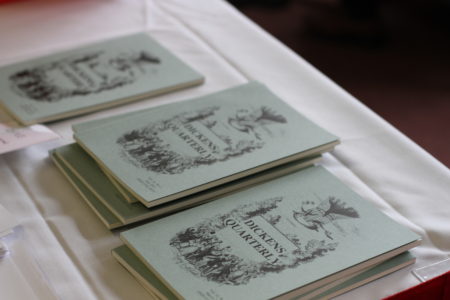Call for Expressions of Interest: Dickens Quarterly Editorship
The Dickens Society, in consultation with the Dickens Quarterly Editorial Board, solicits expressions of interest in the role of editor for the Dickens Quarterly. David Paroissien, who has served the journal as editor with inimitable commitment, wisdom, and élan since 1983, has announced that he will step down from the position in the next few years. Therefore, the society would like to begin to assemble a long-list of candidates for the editorship. If you are interested in applying for the position, please send a CV and a vision statement of no more than 750 words to Leslie Simon, Nominating Committee Chair, at lsimon@uvu.edu, by April 1, 2019.
Dickens Quarterly is the official scholarly publication of the Dickens Society, founded in 1970 at the Modern Language Association Convention. The journal publishes papers four times a year on all aspects of Dickens’s life and literary works in a range of formats, including scholarly articles, essays, notes, and reviews. Supporting research and writing on the rich and diverse subjects, characters, themes, and plots explored by Charles John Huffam Dickens, the journal is the preeminent source for intriguing, substantive, peer-reviewed Dickensian content.
Suitable candidates for the editorship of Dickens Quarterly will have a distinguished record of scholarship in Dickens studies, will reflect a vibrant commitment to both the journal and the society, and will present an ambitious vision for the Dickens Quarterly – one that maintains the journal’s tradition of critical excellence while also working innovatively to engage younger scholars and adapt to the changing research environment. Candidates should be willing to network extensively and operate effectively on both sides of the Atlantic. The Dickens Society is an international organization; of the 23 conferences held to date, ten have taken place outside the United States. Sustaining this momentum will be one of the challenges of a future editor. Furthermore, professional connection to an active center of nineteenth-century studies – though not required – is understood to offer advantages to the journal and society. Since the position is not financially supported by the journal or the society, institutional support for travel, as well as a professional schedule that can accommodate the editor’s responsibilities, will also be perceived as assets.

